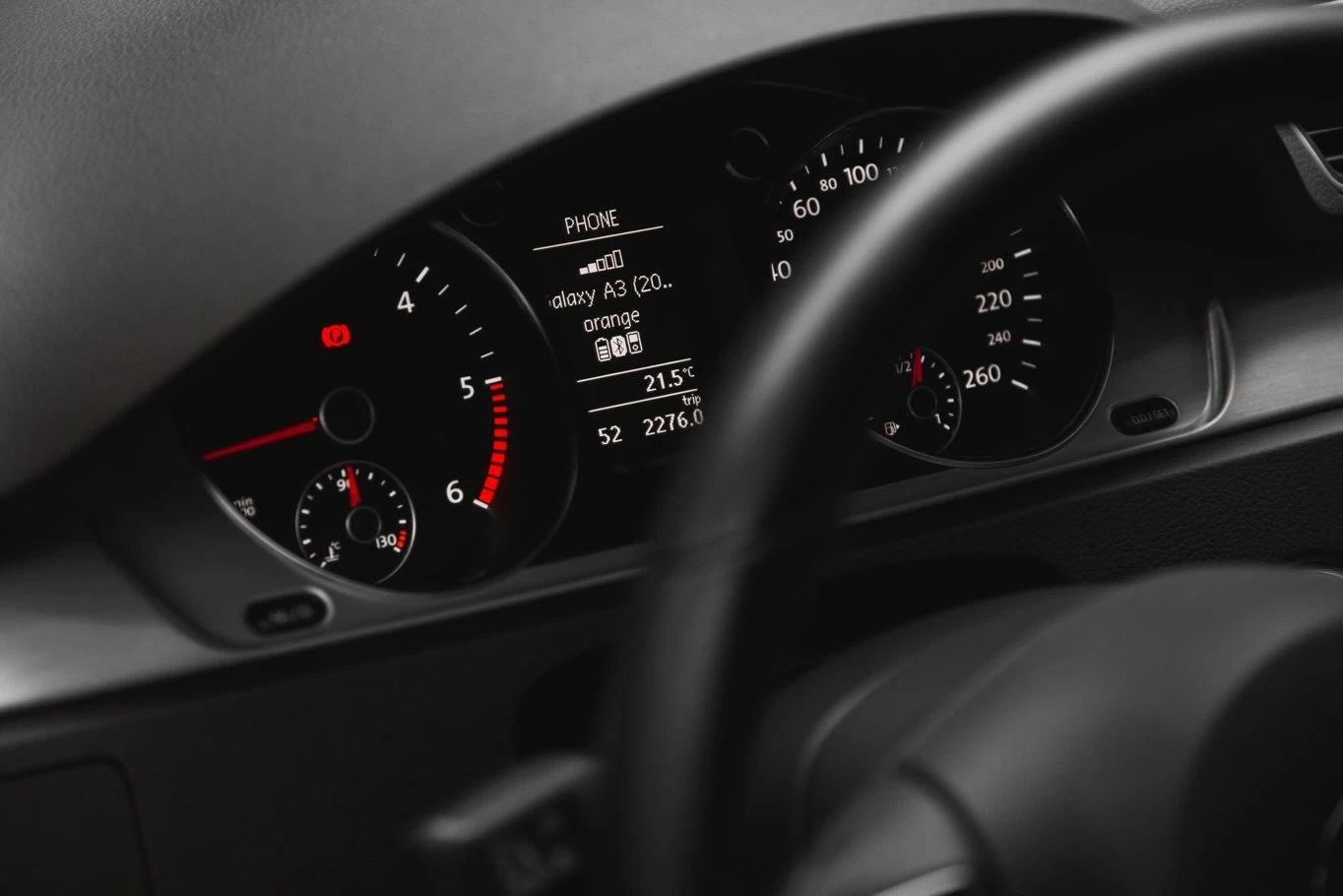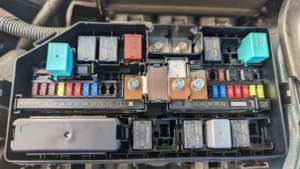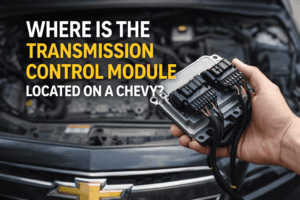Nothing is more alarming for a driver than a flashing check engine light paired with a shaking vehicle. This combination usually indicates a serious issue requiring immediate attention. Modern cars rely on complex engine management systems that monitor performance and detect problems.
When something goes wrong, the check engine light alerts the driver, and in severe cases, the car may shake due to misfires or mechanical issues.
A car’s engine should run smoothly, providing a balanced mix of power and efficiency. However, when it starts shaking along with an illuminated or flashing warning light, it suggests something is disrupting the engine’s normal function.
From fuel delivery problems to ignition failures, there are multiple reasons why this could happen. Understanding these causes can help prevent further damage and costly repairs. In this guide, we’ll explore what might be causing these symptoms and how to diagnose and fix them effectively.
Why Is the Check Engine Light Flashing?
A flashing check engine light differs from a steady one. A steady light suggests a minor issue, while a flashing light signals a severe problem, often related to engine misfires.
Misfires occur when fuel doesn’t burn properly in one or more cylinders, leading to rough operation and potential damage to the catalytic converter.
Common reasons include:
- Faulty spark plugs or ignition coils
- Fuel delivery issues
- Air intake or vacuum leaks
- Malfunctioning sensors
- Catalytic converter problems
If ignored, prolonged misfires can cause severe engine damage, increasing repair costs significantly.
Why Is the Car Shaking?
Car shaking is typically linked to engine misfires but can also stem from other issues. Vibrations may occur during idle, acceleration, or braking, depending on the underlying cause. Some potential reasons include:
- Engine Misfire: When one or more cylinders fail to ignite correctly, it causes uneven power delivery, leading to noticeable shaking.
- Bad Motor Mounts: These mounts secure the engine to the car’s frame. If they wear out, the engine may move excessively, causing vibrations.
- Fuel System Problems: Clogged injectors or a weak fuel pump can result in an imbalanced air-fuel mixture, leading to rough operation.
- Transmission Issues: Problems with gear shifting can cause jerking or shaking, especially when accelerating.
- Damaged Exhaust Components: A broken exhaust pipe or failing catalytic converter can cause irregular airflow, leading to noticeable vibrations.
Understanding the root cause helps in applying the right fix, ensuring a smooth driving experience.
Common Causes and Fixes
1. Faulty Spark Plugs or Ignition Coils
Symptoms:
- Rough idling and poor acceleration
- Engine misfires, leading to vibrations
- Reduced fuel efficiency
Cause:
Spark plugs ignite the air-fuel mixture inside the engine. If they wear out or fail, combustion becomes inefficient, leading to misfires. Ignition coils are responsible for supplying voltage to the spark plugs. A failing coil can cause the same symptoms.
Fix:
- Replace worn-out spark plugs (recommended every 30,000 to 100,000 miles, depending on type).
- Test ignition coils using a multimeter or swap them between cylinders to see if the misfire moves.
- Ensure proper gapping in spark plugs for optimal combustion.
2. Clogged or Faulty Fuel Injectors
Symptoms:
- Engine misfires due to an incorrect fuel mixture
- Rough acceleration or hesitation
- Poor fuel economy
Cause:
Fuel injectors spray fuel into the engine. Over time, they can become clogged with carbon deposits, restricting fuel flow and leading to misfires.
Fix:
- Use a high-quality fuel injector cleaner.
- If the problem persists, have a mechanic perform ultrasonic cleaning.
- Replace faulty injectors if cleaning doesn’t solve the issue.
3. Malfunctioning Mass Airflow (MAF) or Oxygen (O2) Sensor
Symptoms:
- Rough idle and hesitation
- Poor fuel economy
- Check engine light triggered
Cause:
The MAF sensor measures incoming air, while O2 sensors monitor exhaust gases. A malfunctioning sensor can disrupt the air-fuel ratio, causing misfires.
Fix:
- Clean the MAF sensor with a specialized cleaner.
- Replace faulty sensors if cleaning doesn’t improve performance.
4. Vacuum Leaks
Symptoms:
- Rough idle with excessive engine vibration
- Hissing noise from the engine bay
- Decreased power
Cause:
Vacuum leaks occur when unmetered air enters the engine, disrupting combustion. This often results from cracked hoses or intake manifold gaskets.
Fix:
- Inspect hoses and seals for cracks or leaks.
- Replace damaged components.
- Use a smoke test to detect hidden leaks.
5. Failing Catalytic Converter
Symptoms:
- Rotten egg smell from exhaust
- Poor acceleration
- Overheating engine
Cause:
The catalytic converter reduces harmful emissions. A misfiring engine can overheat and damage the converter, leading to restricted exhaust flow.
Fix:
- If clogged, a mechanic may attempt to clean it.
- In severe cases, replacement is the only option.
6. Low Fuel Pressure
Symptoms:
- Engine stalling or struggling to accelerate
- Surging or jerking motion
- Check engine light flashing
Cause:
A weak fuel pump or clogged fuel filter can reduce fuel pressure, leading to an improper air-fuel mixture.
Fix:
- Test fuel pressure with a gauge.
- Replace a weak fuel pump or clogged filter.
What to Do If Your Check Engine Light Is Flashing and Car Is Shaking?
- Pull Over Immediately: Continuing to drive can worsen the issue.
- Check for Obvious Problems: Inspect for loose wires, disconnected hoses, or fluid leaks.
- Scan for Error Codes: Use an OBD-II scanner to retrieve trouble codes. This helps identify the problem quickly.
- Address the Issue Promptly: Even if the car still runs, a flashing check engine light signals an urgent issue. Driving in this condition can cause significant damage.
Preventing Future Issues
- Follow Regular Maintenance: Replace spark plugs, fuel filters, and sensors as recommended by the manufacturer.
- Use High-Quality Fuel: Bad fuel can cause misfires and carbon buildup in the engine.
- Monitor Warning Signs: Unusual noises, sluggish acceleration, or poor fuel economy may indicate upcoming problems. Addressing them early can prevent more significant repairs.
A flashing check engine light combined with a shaking car signals a serious problem that requires immediate attention. The most common causes include misfiring cylinders, fuel system issues, or sensor failures. Ignoring the issue can lead to costly repairs, including catalytic converter failure or engine damage.
By diagnosing the problem early using an OBD-II scanner and addressing faulty components, drivers can restore their vehicle’s smooth operation. Routine maintenance, such as replacing spark plugs and cleaning fuel injectors, can prevent these issues from occurring in the first place. If the problem persists, consulting a professional mechanic is the best course of action to avoid long-term damage.





